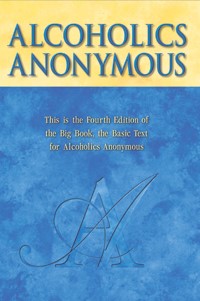Alcoholics Anonymous – The AA Big Book
…the body of the alcoholic is quite as abnormal as his mind. It does not satisfy us to be told that we cannot control our drinking just because we were maladjusted to life, that we were in full flight from reality, or were outright mental defectives. These things were true to some extent, in fact, to a considerable extent with some of us.
But we are sure that our bodies were sickened as well. In our belief, any picture of the alcoholic which leaves out this physical factor is incomplete.
…we favor hospitalisation for the alcoholic who is very jittery or befogged. More often than not, it is imperative that a man’s brain be cleared before he is approached, as he has then a better chance of understanding and accepting what we have to offer.
Of course an alcoholic ought to be freed from his physical craving for liquor, and this often requires a definite hospital procedure, before psychological measures can be of maximum benefit.
Doctors Opinion, Alcoholics Anonymous pp xxv-xxvi1
But this does not mean that we disregard human health measures. God has abundantly supplied this world with fine doctors, psychologists, and practitioners of various kinds. Do not hesitate to take your health problems to such persons…
Their services are often indispensable in treating a newcomer and in following his case afterward.
Alcoholics Anonymous, Chapter 9 p133
SLAA Literature

Sex and Love Addicts Anonymous is a Twelve Step, Twelve Tradition oriented fellowship based on the model pioneered by Alcoholics Anonymous.
SLAA Preamble © 1986 The Augustine Fellowship, S.L.A.A., Fellowship-Wide Services, Inc.
During our active addiction, we had been the embodiment of sickness, tainting reality for all those who came in contact with us. Our spiritual, emotional, mental, and sometimes physical disease had contaminated even those relationships which could otherwise have been healthy. Our commitment to recovery had now moved beyond the self -interest of survival.
SLAA Basic Text Step 8 © 1986 The Augustine Fellowship, S.L.A.A., Fellowship-Wide Services, Inc.
My top line is what I do want for myself, my program goals. I want to integrate myself physically, emotionally, mentally, and spiritually; to relate to others from a state of wholeness; to live making decisions from a place of freedom and clarity rather than compulsion and confusion; to feel sufficiently safe to stay open enough to find the little realities of life moving, rather than needing to get dropped off a cliff to get a thrill. I want to be present, see things the way they are, and be glad to be alive.
SLAA Basic Text, Member Story: The Language of the Emotionally Damaged © 1986 The Augustine Fellowship, S.L.A.A., Fellowship-Wide Services, Inc.
Additionally, healthy habits such as eating well, bathing, exercising, and resting help us avoid states which may contribute toward addictive behaviours. We consider ways in which we can enjoy life and love ourselves, without triggering our addictive craving. We may want to reward or acknowledge our abstinence. Instead of acting out, we find activities that are healing for us: enjoying a healthy and attractive meal for one, visiting a nature sanctuary, going to a baseball game, listening to classical music, walking the dog, taking the family on a picnic, or attending a play at our child’s school are some examples of activities we have come to appreciate and enjoy.
Withdrawal Pamphlet © 1985 The Augustine Fellowship, S.L.A.A., Fellowship-Wide Services, Inc.
Self Care: We take tender care of our body, our food, our possessions and clothes, our desires and dreams, our fun, our vacations, and our emotional and sexual needs. We dedicate time and energy to ourselves. … Physical exercise and good nutrition can be critical … . We may start to exercise and then develop other routines. We might commit to improving our nutrition, finding time to cook good food for ourselves, and buying food we like that will nourish us. A large part of our recovery is connected to “feeling comfortable in our skin” and in our bodies… In the past, it was hard to nurture our body and soul. Indeed, sometimes it still is hard to do so. But today it is becoming easier and easier to love, care for, and nourish ourselves. We continue to use the SLAA Program to bring health to all areas of our lives
SLAA Anorexia Recovery Tools pp 9 & 37 © 2017 The Augustine Fellowship, S.L.A.A., Fellowship-Wide Services, Inc.
Most of us have ignored our physical and mental health while pursuing our addiction. Be sure to consider visiting your physician and dentist. Taking care of your health is an important step in sobriety. We find it important to get plenty of sleep, good nutrition and physical exercise.
Making a beginning in Recovery – SLAA Fellowship World Services website
NEXT – Why is sexual recovery so hard? Why such a large burnout and failure rate?
